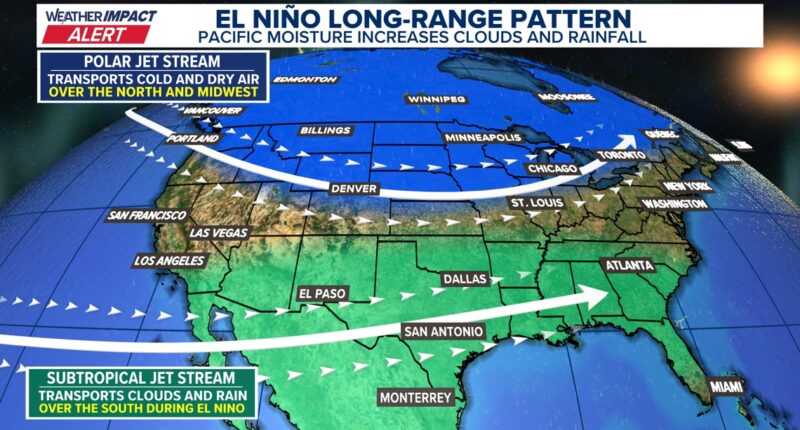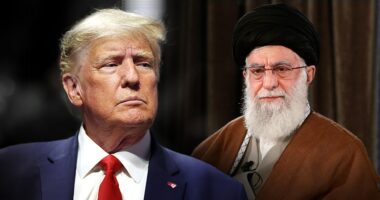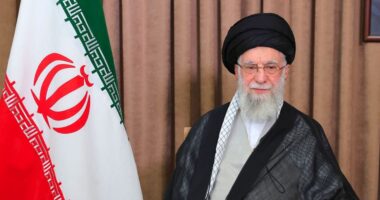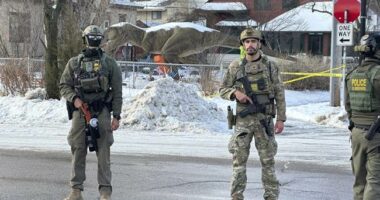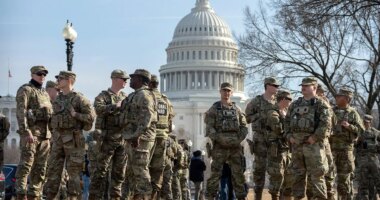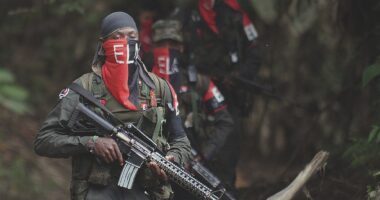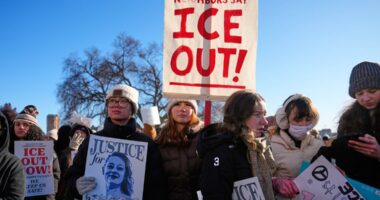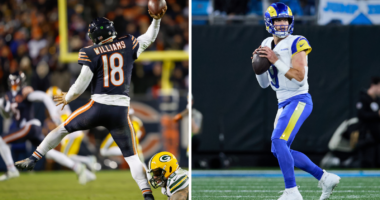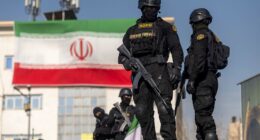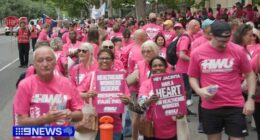Share this @internewscast.com
La Niña and El Niño represent two distinct phases of the El Niño Southern Oscillation (ENSO), marked by variations in Pacific Ocean temperatures. While La Niña is characterized by cooler waters, El Niño is noted for its warmer seas.

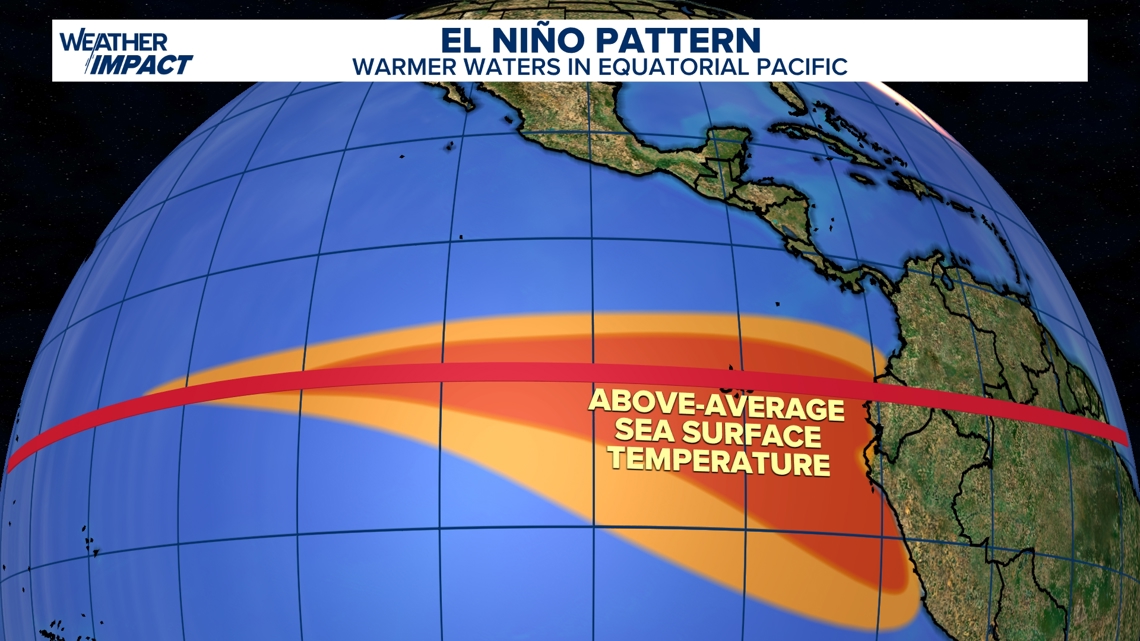
According to the latest ENSO outlook from the Climate Prediction Center, there is an anticipated gradual shift underway. The current weak La Niña conditions are expected to transition toward a weak El Niño by the end of summer.

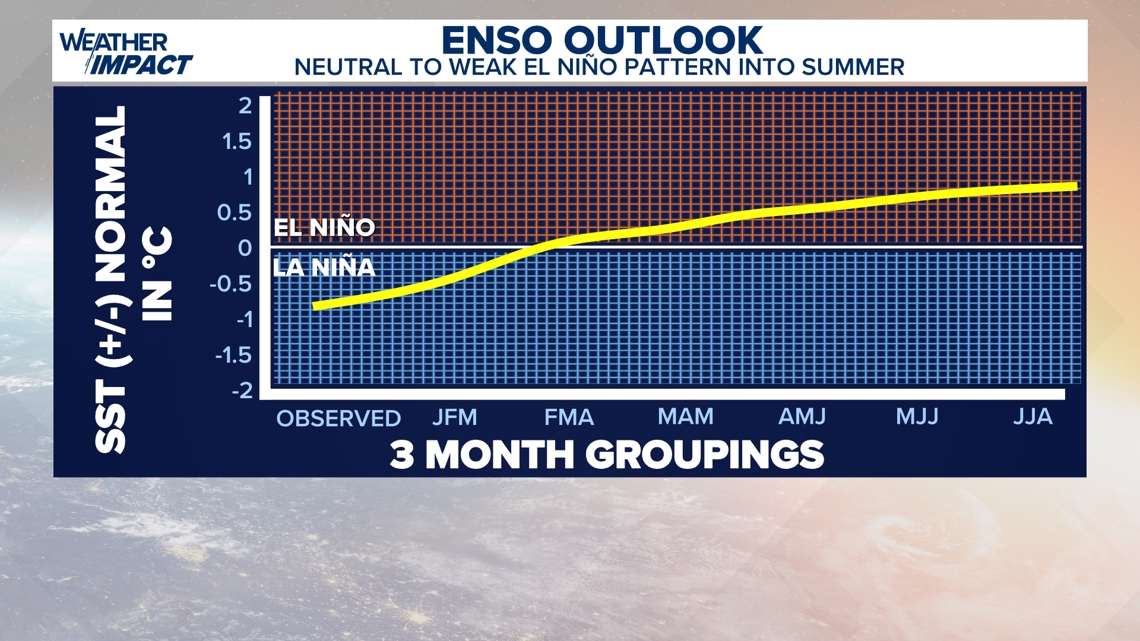
This winter season has been notably drier than usual for numerous regions. Although sporadic rain and snow have occurred, the persistent drought has intensified across the southern United States, a typical consequence of a La Niña winter. As of mid-January, the southern areas have experienced particularly dry conditions.

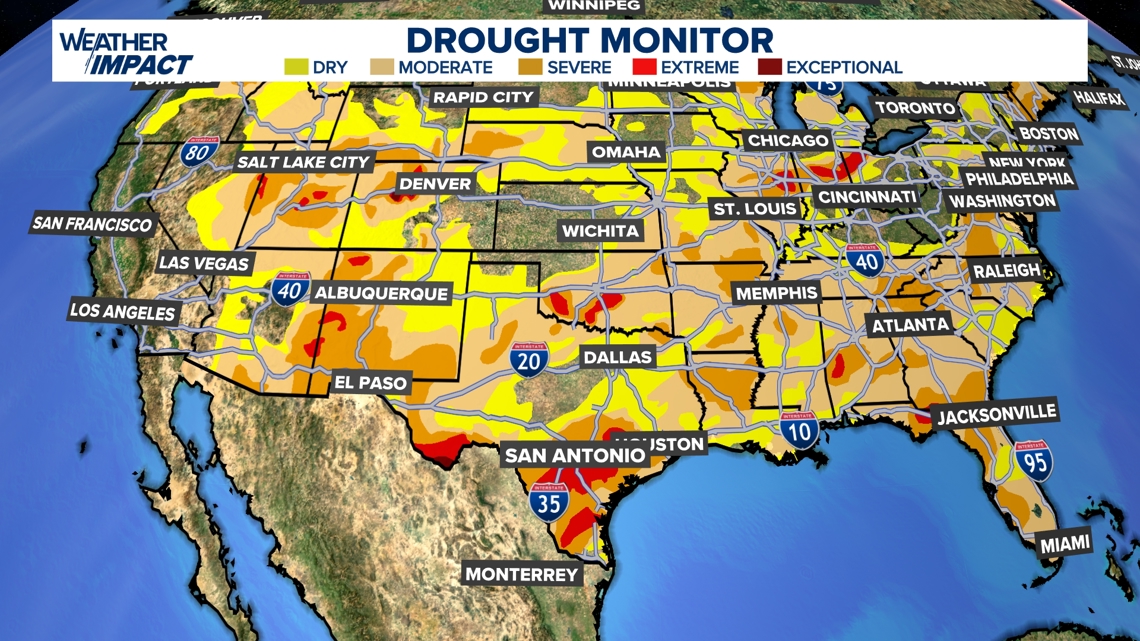
The prospect of El Niño brings a welcome change. This phase generally promises increased rainfall for the southern states, offering relief from the arid conditions.

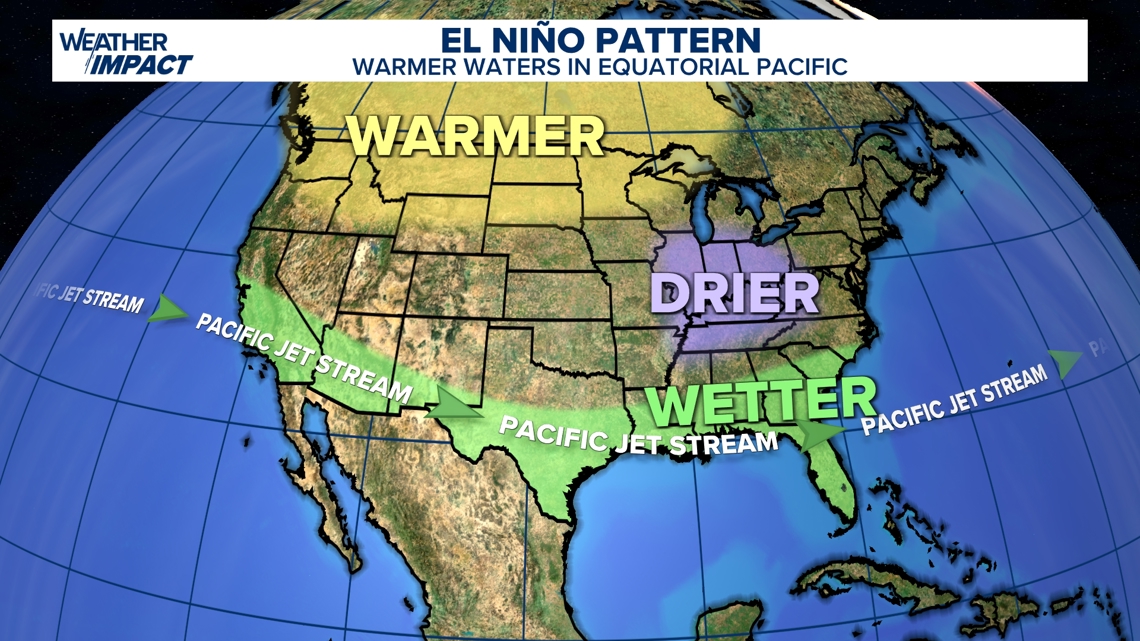
Rainfall patterns are among the most prominent effects of El Niño. A robust and active subtropical jet stream usually delivers wetter-than-average weather to the southern U.S., including the Southwest and the Gulf Coast, especially during winter months. Nevertheless, the impacts of El Niño can be felt throughout the year.
Conversely, during an El Niño phase, regions such as the Northwest, Plains, and Midwest often face drier and warmer conditions. The transition from La Niña to El Niño can be gradual and may not occur uniformly across these areas.
Looking ahead to summer, the long-range pattern can shape climate conditions in the southern United States. El Niño summers often bring slightly cooler and, in some areas, wetter conditions compared to La Niña summers, which are typically hotter and drier in the South.
Increased spring rainfall can help replenish soil moisture, potentially moderating intense heat early in the season. However, lingering warmth in the atmosphere and oceans can still support periods of extreme heat and humidity, meaning El Niño does not eliminate summer heat risks.
While not all El Niño pattern are the same, here’s an example. Between 2014 and 2015, we shifted into a weak El Niño pattern. This helped enhance rainfall across for several cities across the South.

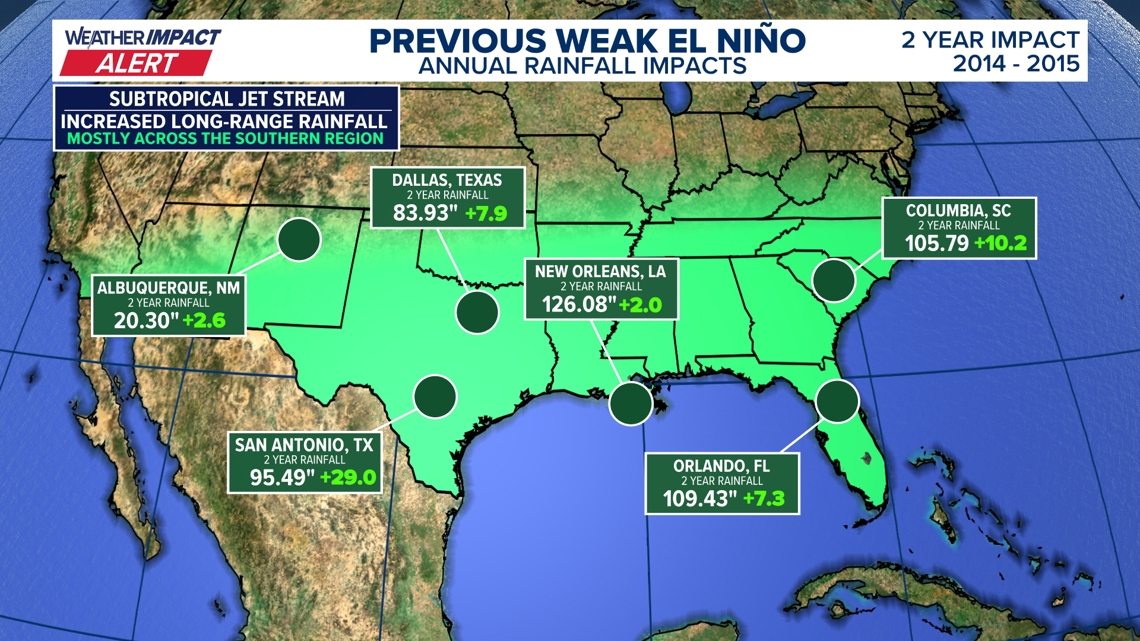
Let’s hope for more rainfall in 2026 because several cities and states have been in perpetual drought. Especially in South Texas.
Ryan Shoptaugh covers national weather. Check your neighborhood forecast from your local trusted local weather team here.
